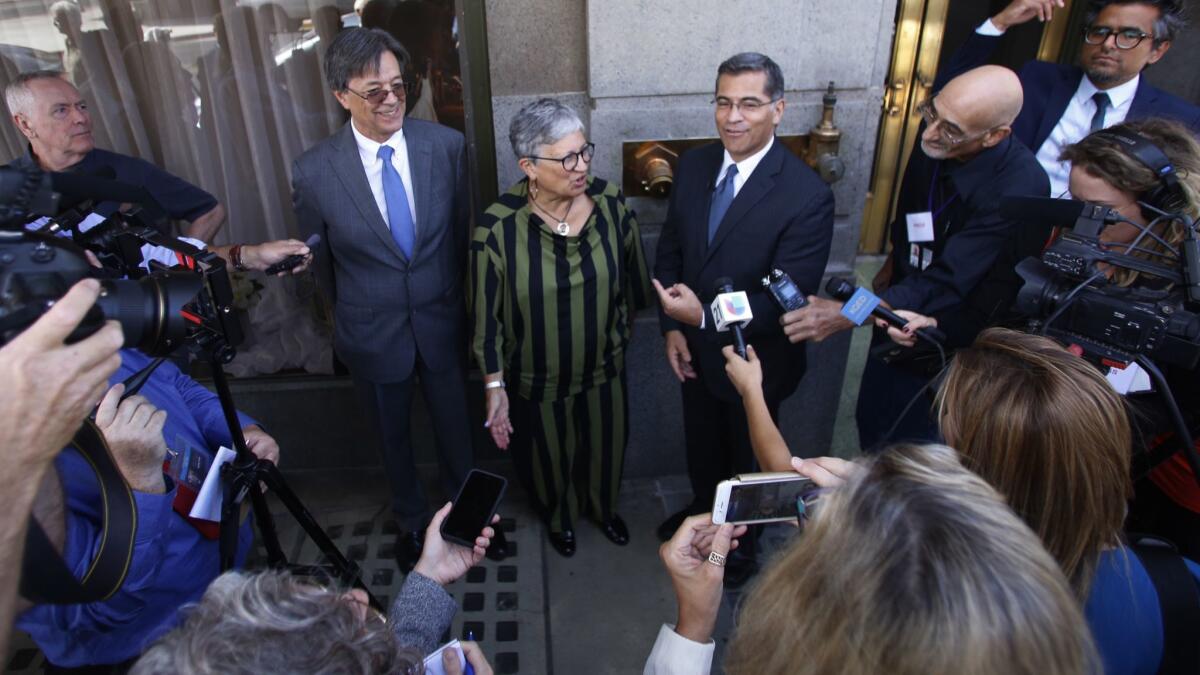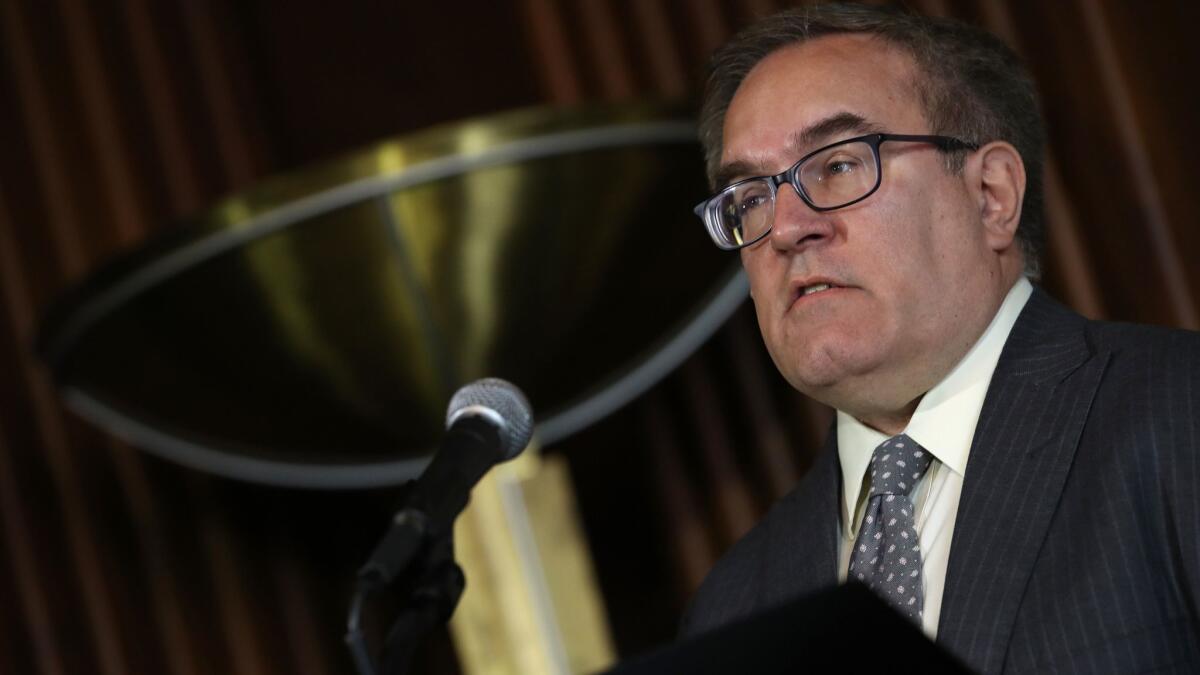Bitter talks over auto emissions turn personal as California and EPA chiefs feud

Top environmental regulators in Washington and Sacramento sparred Thursday over failed negotiations on contentious vehicle emissions and fuel economy rules — each blaming the other for a standoff that could lead to years of legal battles and dueling auto requirements in parts of the U.S.
The public flash of tensions — erupting on Capitol Hill — revolves around the Trump administration’s proposal to cap fuel economy and tailpipe carbon emissions standards at 2020 levels, instead of raising them annually. White House officials in February terminated talks with the California Air Resources Board over a potential compromise on the plan, which also would revoke the state’s authority to regulate automobile greenhouse gas emissions.
The tension was so thick that Trump administration officials were apparently unwilling to sit at the same table with their California counterpart during a hearing Thursday. And then it got personal, which doesn’t bode well for a resolution that automakers are eagerly awaiting.
The spat began when U.S. Environmental Protection Agency Administrator Andrew Wheeler, a former energy lobbyist, sent a letter to top Republicans on the House Energy and Commerce Committee hours before CARB Chairwoman Mary Nichols was to testify, accusing the state of negotiating in bad faith.
Nichols, a California anti-pollution campaigner for almost 50 years, pointed fingers back at Washington, telling lawmakers in her prepared testimony that “the Trump administration has been unwilling to find a way that works” and “unilaterally decided to cut off conversations.”
Wheeler and Nichols are formidable foes.
Nichols began her fight against air pollution when she filed the first lawsuit to force the EPA to carry out the Clean Air Act as a 27-year-old lawyer in Los Angeles in 1972. She joined CARB three years later. This year, she mulled tough, new pollution rules — including an unprecedented ban on cars burning petroleum-based fuels.
Wheeler, by contrast, is a longtime Washington operator — a politically savvy former Senate staffer turned lobbyist who took over the EPA after the departure of Scott Pruitt in July. A lawyer who once worked on toxic chemical issues as an EPA staffer, Wheeler later advised Sen. James Inhofe (R-Okla.), who famously carried a snowball onto the Senate floor to dispute the effects of climate change. As a lobbyist, Wheeler represented coal producer Murray Energy Corp., uranium miner Energy Fuels Resources Inc., chemical maker Celanese Corp. and other clients.
Thursday’s war of words further diminishes the odds of any deal that would yield unified national requirements — and avert a long legal fight automakers say will quash investment in the sector. The White House already rebuffed a group of 17 automakers, which pleaded this month for renewed talks.
Automakers are terrified the Trump administration’s plan will result in legal challenges, years of uncertainty and a split market, with federal mileage requirements governing most states and California-backed rules governing vehicles in 14 other states, which account for more than a third of U.S. auto sales.

Wheeler rejected Nichols’ characterization. “Ms. Nichols was unable or unwilling to be a good-faith negotiator,” Wheeler said, insisting that California’s first counterproposal came more than 10 weeks after the Trump administration proposed changing the vehicle standards — and was just a reiteration of the existing Obama-era requirements, with only a modest change to give automakers an extra year of compliance time.
Even then, Wheeler said, it didn’t have the approval of California’s governor, the state’s attorney general or Nichols’ fellow Air Resources Board members.
“I would state categorically that we proposed areas in which we would be willing to come to a compromise with the administration, and we never were told precisely what was wrong with any of those proposals,” Nichols told lawmakers Thursday. “We were simply told that they were inadequate and we had failed to do our job by not bringing a proposal that the administration found to be acceptable.”
While Wheeler and Nichols traded barbs on paper, senior EPA and National Highway Traffic Safety Administration officials testified before skeptical lawmakers. Early on, some Democratic lawmakers chastised Bill Wehrum, associate administrator of the EPA’s Office of Air and Radiation, and NHTSA Deputy Administrator Heidi King for allegedly refusing to appear on the same panel as Nichols.
“If EPA and NHTSA are so confident that this rule is safer and better for our country, I think they would welcome the opportunity to testify alongside Ms. Nichols,” said Rep. Doris Matsui (D-Sacramento). “Instead, when confronted with experts and science, the Trump administration recoils and retreats instead of defending their so-called SAFE vehicles rule, a disaster for our country.”
Nichols initially had raised the possibility of peace in her written testimony filed with the House of Representatives, appealing for the administration “to abandon this flawed proposal and come to the table with California, just as automakers representing the majority of the market asked the president.”
More to Read
Inside the business of entertainment
The Wide Shot brings you news, analysis and insights on everything from streaming wars to production — and what it all means for the future.
You may occasionally receive promotional content from the Los Angeles Times.










